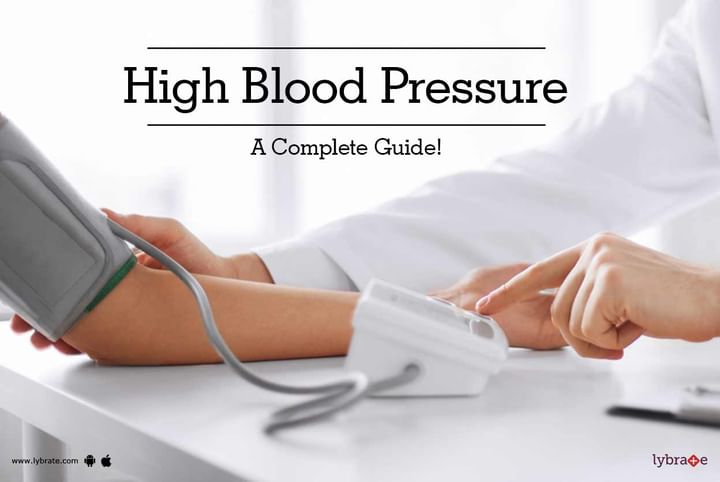High Blood Pressure - A Complete Guide!
Hypertension is commonly known as high blood pressure, a condition in which the heart pumps excessive blood which may eventually cause damage to the arteries. Hypertension generally develops over a prolonged period of time. Hypertension is calculated to be a blood pressure count above 140/90 (millimetres of mercury).
Hypertension is of two types:
- Primary hypertension: The cause of primary hypertension is not specific. It happens to develop over a period of time.
- Secondary hypertension: Secondary hypertension occurs due to an underlying health condition. This type of hypertension may develop all of a sudden. There are many causes of secondary hypertension
- Kidney problem
- Thyroid problems
- Congenital defects in blood vessels
- Excessive alcohol consumption
- Side effects of certain prescribed medications
- Intake of prohibited drugs
- Hypertension and pregnancy
In some cases high blood pressure can develop during a pregnancy. If high blood pressure persists for over 20 weeks, it can cause severe complications. Untreated hypertension can result in premature delivery.
Signs you have hypertension
Hypertension generally does not have any specific symptom. Thus, it can remain undiagnosed for years. Some of the symptoms of hypertension are:
- Headaches
- Dizziness
- Nose bleeding
- Irregular heartbeat
- Tiredness and fatigue
- Breathing difficulty
Risks associated with hypertension
- Heart diseases
- Stroke
- Heart failure
- Vision loss
- Kidney damage
- Memory loss
How can it be treated?
Incorporating certain changes to your diet can help in combating the symptoms of hypertension. In a nutshell, a healthy way of living consisting of a well- balanced diet and regular exercises are the most basic ways of treating this condition. Some of the important lifestyle changes that can treat high blood pressure are:
- Restrict salt in your diet to a maximum limit of 5g a day.
- Limit alcohol consumption
- Lose weight by keeping a check on your diet and exercising regularly
- Manage your stress levels by using relaxation techniques to manage stress levels.
- Medications are also used to lower the blood pressure
- Calcium-channel blockers
- Vasodilators
- Angiotensin receptor blockers
If you wish to discuss any specific problem, you can consult here



+1.svg)
